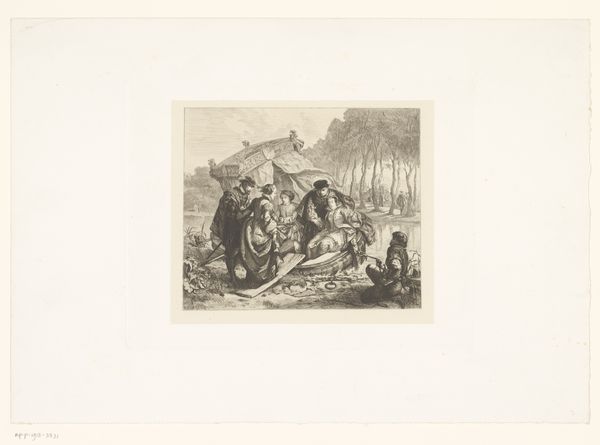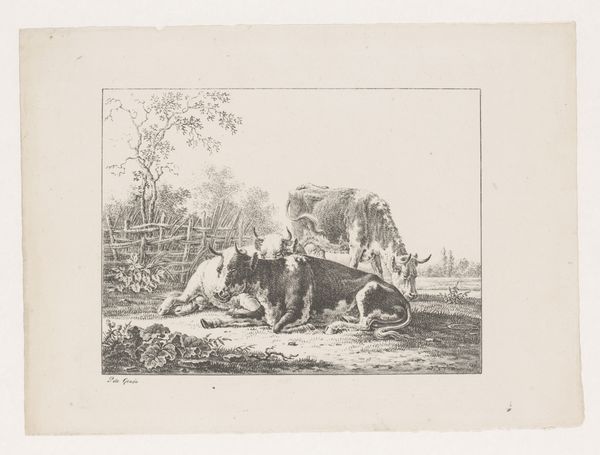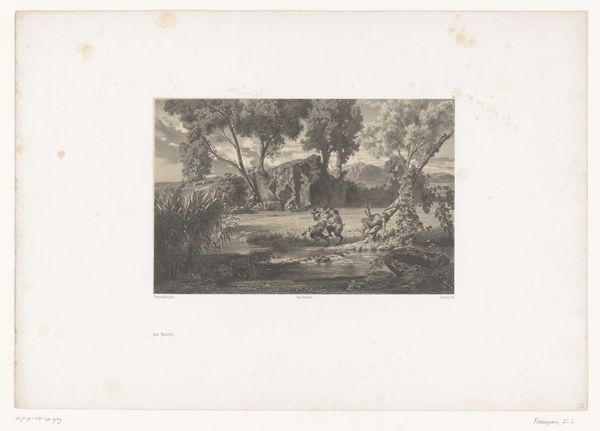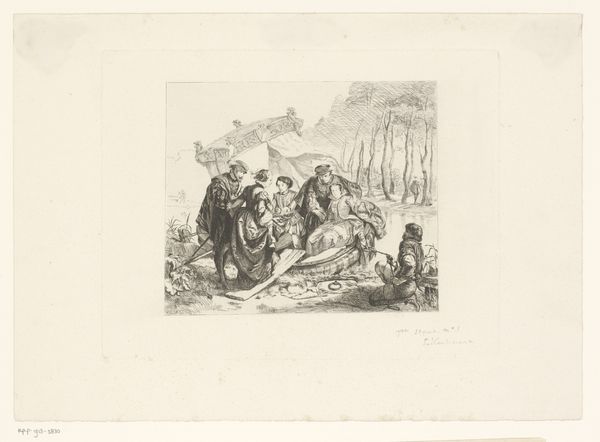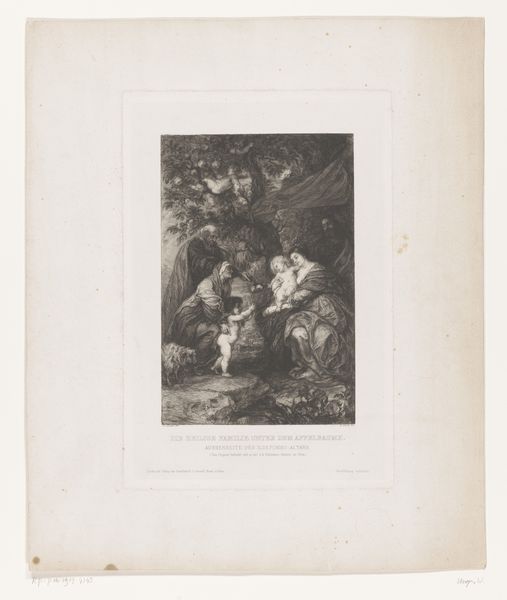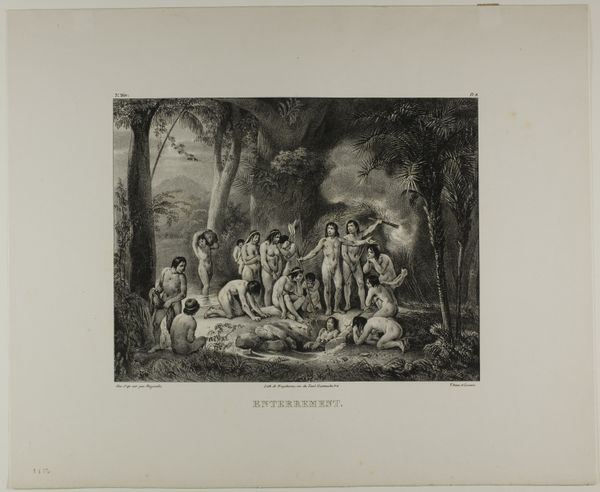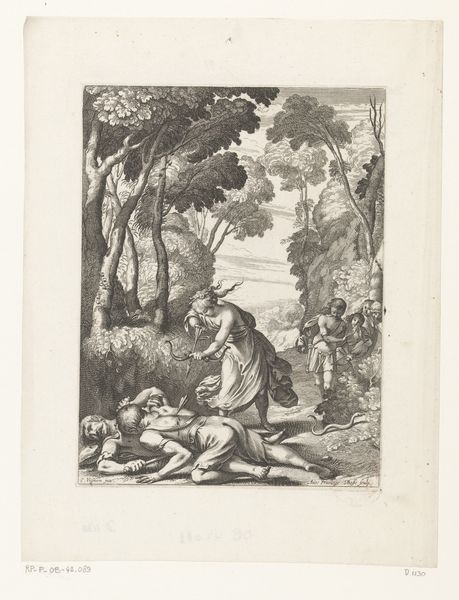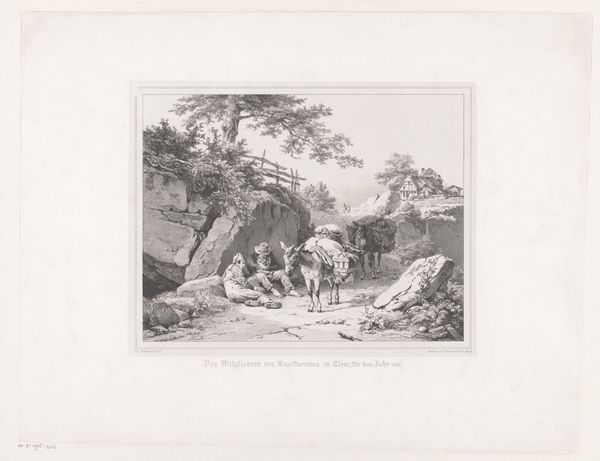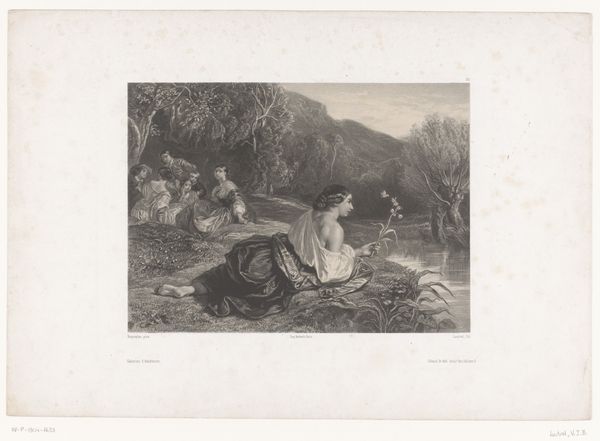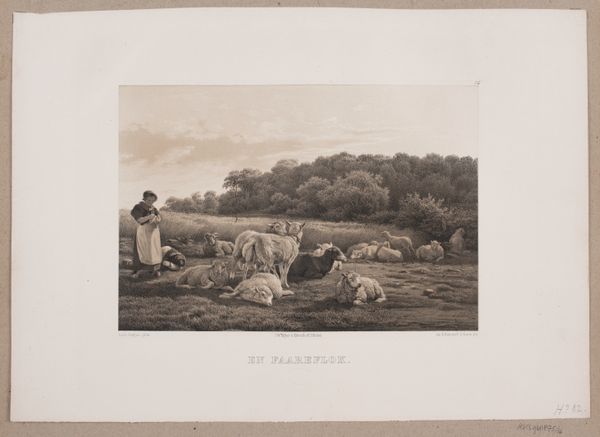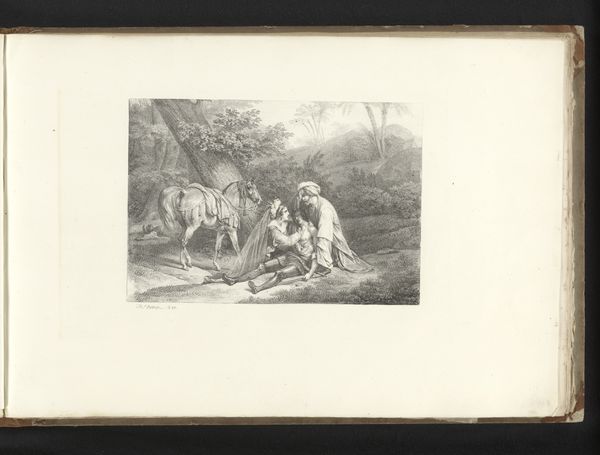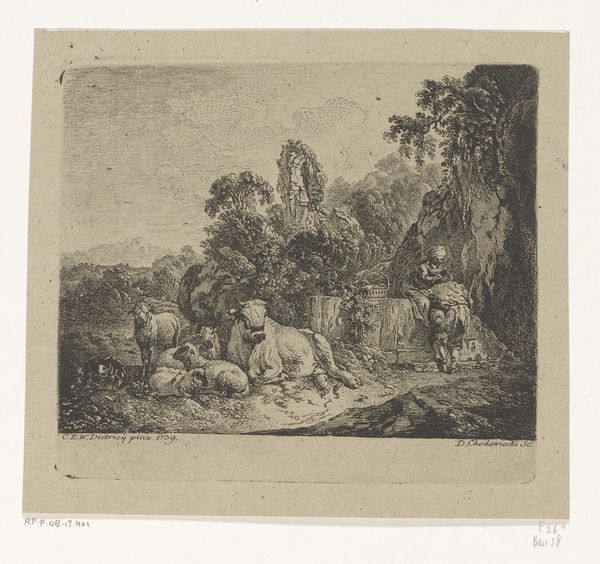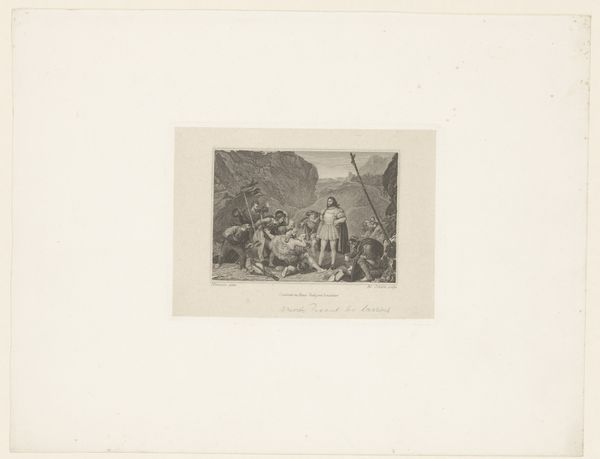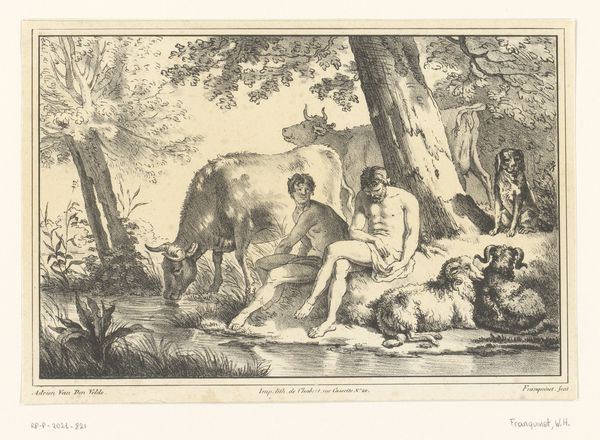
drawing, print, paper, pencil, engraving
#
pencil drawn
#
drawing
#
narrative-art
# print
#
pencil sketch
#
paper
#
pencil drawing
#
romanticism
#
pencil
#
genre-painting
#
engraving
Dimensions: height 363 mm, width 538 mm
Copyright: Rijks Museum: Open Domain
Hippolyte Bellangé made this print of resting scouts using a technique called etching. It’s all about the controlled degradation of a metal plate. Bellangé would have coated a copper or zinc plate with a waxy, acid-resistant substance called a ground. Then, using a sharp needle, he scratched away the ground to expose the metal underneath. After this, he immersed the plate in acid, which bit into the exposed lines, creating grooves. The longer the acid bath, the deeper the lines, and the darker they’d appear in the print. Printing involves inking the plate, wiping the surface clean so ink remains only in the etched lines, and then pressing paper against the plate to transfer the image. What I love about etching is how it exposes the labor behind the image – all those tiny deliberate scratches, and the careful timing of the acid bath. It reminds us that even seemingly effortless images are the result of painstaking work.
Comments
No comments
Be the first to comment and join the conversation on the ultimate creative platform.
